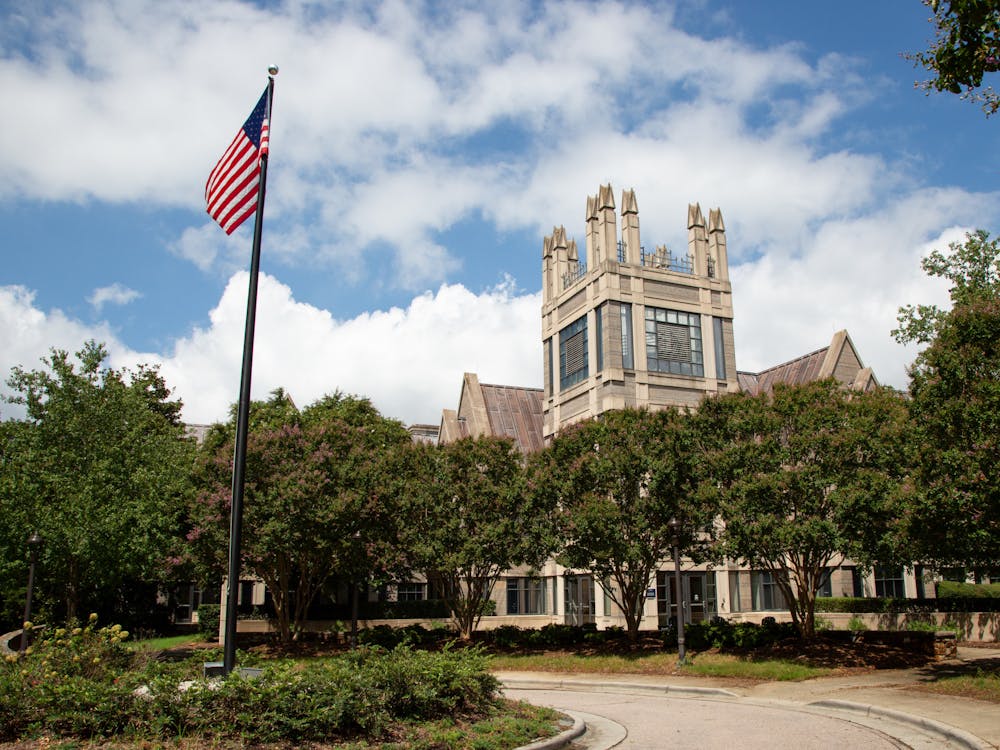As geopolitical circumstances have rendered the 2024 U.S. election a target of foreign interference, the Biden administration is cracking down on Russian attempts to sway voters.
The Chronicle spoke with professors from Sanford School of Policy and the political science department to learn more about the implications of foreign interference in U.S. elections.
The interference crackdown included the seizure of 32 Russian internet domains allegedly tied to efforts to spread “Russian propaganda” and bolster Russian interests, including those related to the election. The Department of Justice also indicted two employees of RT, a Russian state-run media company, for allegedly helping direct $10 million towards a Tennessee-based company that creates content to “amplify domestic divisions” and support Russia’s goals.
The actions mark the Biden administration’s most substantial effort to push back against Russian meddling in the election.
According to Peter Feaver, professor of political science and director of the Duke Program in American Grand Strategy, although “it's doubtful that [foreign interference] could swing millions and millions of votes … if the election is very tight and comes down to small numbers in certain key swing states, then it could have an outsized impact.”
Professor Bruce Jentleson, William Preston Few distinguished professor of public policy, echoed Feaver’s perspective, pointing out that in a close election, if Russia can “affect 0.5 of 1% of the vote, [they] can have an impact.”
Russia’s propaganda campaign has attempted to alter the American public’s perception of the ongoing war in Ukraine. The election’s outcome could significantly dictate American support for Ukraine, including military aid, intelligence sharing and diplomatic backing, according to Jon Green, assistant professor of political science.
Green emphasized the divergent views on the Russia-Ukraine war on display during the Sept. 10 presidential debate, including on whether the U.S. should sell weapons to Ukraine. To Green, this gives Russia a “fairly strong interest” in the election’s outcome.
Republican presidential nominee Donald Trump has repeatedly criticized NATO, in which the U.S. makes the largest contribution to defense spending among member nations. Trump has said he would withhold protection — and even encourage Russian aggression — towards allies who make insufficient defense contributions. This stance resonates with Russia’s interests to weaken the strength of NATO and support for Ukraine.
“If you're Putin and you're looking for help in waging your war against Ukraine, you probably will get more help in that from a Trump 2.0 than you would from a Harris-Walz administration,” Feaver said.
Amid the crackdown on foreign election interference, Green highlighted a potential cause for the seemingly elevated threat.
“What is relatively new is the two major parties diverging in their foreign policy goals in ways that create incentives for countries to take an interest in who wins,” he said.
Green argued that Russia’s propaganda campaigns seek to “erode trust in mainstream institutions” by influencing public perceptions of media and election integrity, even if they fall short of steering voting patterns.
He noted that people are more inclined to accept misinformation when it supports their existing beliefs.
“Oftentimes misinformation is less about getting tricked and much more about us nodding along to something that supports our existing worldview,” he said.
To Feaver, the best way to combat misinformation and foreign propaganda on a personal level is to seek out a variety of news sources and consider their track record on correcting mistakes. He noted that when an outlet reports information contrary to their own biases, it may be a sign of more trustworthy content.
Get The Chronicle straight to your inbox
Signup for our weekly newsletter. Cancel at any time.
Mia Taubenblat is a Trinity first-year and a staff reporter for the news department.

